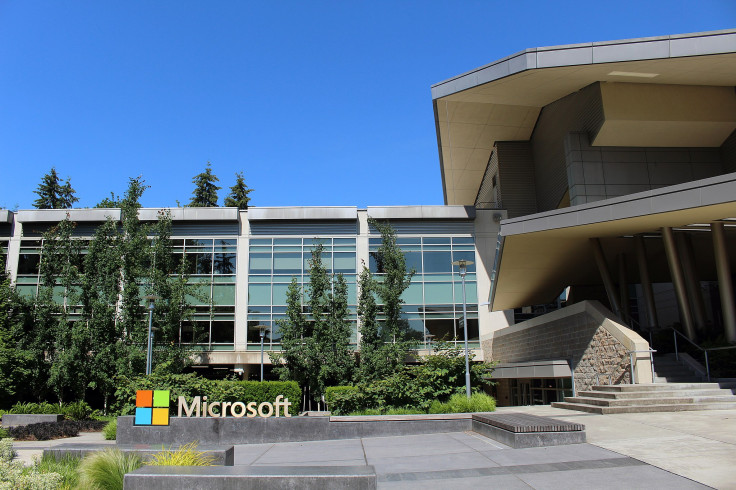Microsoft Insists Copilot Is A Key Tool For Windows
Windows 10 users can now try out Microsoft's AI-powered Copilot, which was previously only available on Windows 11.

Microsoft is sparing no effort in a bid to convince its users that Copilot is a crucial tool that enhances the overall experience within its system.
To recap, the Redmond-based tech giant announced Microsoft Copilot back in September, promoting the tool as "your everyday AI companion". So, it is safe to say that Microsoft considers Copilot one of its major assets for the future.
Artificial Intelligence (AI) is slowly becoming an inseparable part of our lives. The technology impacts a considerable number of companies, jobs and a slew of other sectors.
Microsoft's Copilot, on the other hand, focuses more on simplifying the lives of those who use the company's tools on a regular basis.
Copilot for Windows
In its latest press release, Microsoft announced the arrival of Copilot on Windows 10. This aligned with an earlier report that indicated the company is planning to bring ChatGPT and Bing AI-powered Copilot to Windows 10 users.
In other words, the tech behemoth is finally allowing Windows 10 users to take advantage of the Copilot, which was originally limited to Windows 11 users. Microsoft released the Windows 10 22H2 Build 19045.3757 (KB5032278) update to the Release Preview Channel for insiders who are on Windows 10 with Copilot baked in.
Today we are releasing Windows 10 Build 19045.3757 to Release Preview Channel.
— Windows Insider Program (@windowsinsider) November 20, 2023
With this update we are beginning rollout of CoPilot on Windows 10 for #WindowsInsiders in the Release Preview Channel. https://t.co/W9lj2krV9Z
Copilot in Windows 10 operates exactly the same way it works in Windows 11. The right side of the taskbar houses a button that you can press to summon the AI-powered chatbot to answer queries and generate text.
Understandably, there are some differences in features given that some of Windows 11's skills or actions do not exist in the previous generation of the Windows operating system.
Currently, Copilot is available for testing to Windows 10 Home or Pro users that are in the Release Preview channel. However, all Windows 10 users in supported markets are likely to get this feature in a matter of days or weeks.
#Microsoft will bring #Copilot for #Windows10!
— Tech4Bliss (@Tech4Bliss) November 19, 2023
Microsoft is set to gradually roll out its innovative #Ai assistant Copilot to Windows 10 (only for Home and Pro editions, 22H2).
But, there will be some limitations of Copilot in Windows 10 compared to #Windows11 #Tech4bliss pic.twitter.com/DcwATkEX4X
In contrast to its earlier plans to end support for Windows 10, Microsoft recently decided to revisit its approach to the popular operating system. In fact, the company is making additional investments in Windows 10 and is set to bring more AI features to the Windows OS.
However, Microsoft noted that it doesn't plan to radically overhaul the Windows 10 OS itself. "This is the last version of Windows 10, so that's 22H2, we're not changing any of that with Windows 10," Vice President of Windows Marketing Aaron Woodman told The Verge.
"We're not making any changes to the end of support for Windows 10, which remains at October 14th, 2025," the top executive added.
Copilot's arrival on Windows 10 doesn't come as a surprise, though. Windows 10 is a very popular operating system and many Windows users are still reluctant when it comes to switching to Windows 11.
According to a Windows Central report based on internal Microsoft data, Windows 11 had reached just 400 million devices after two years since its launch. For comparison, Windows 10 reached that milestone just a year after it was launched. The OS reached 600 million devices shortly after its two-year anniversary.
The press release also highlights the usefulness of Copilot. Notably, the company places importance on the tool's ability to help workers manage their tasks within applications like Teams or Outlook messaging.
Aside from this, Microsoft promoted Copilot's content generation capability, which is made possible by integrating Bing Chat. Copilot is designed to seamlessly integrate into Microsoft's own applications and provide a slew of work support.
Copilot's skyrocketing popularity is evident in how Microsoft is trying to expand the branding of this service and how the company rebranded the new Bing Chat to Copilot.
Cutthroat competition
There's no dearth of AI-powered tools that offer support across multiple applications with the same ecosystem. For instance, Google has managed to create its own version with the help of its AI-backed chatbot Bard.
The search giant provides its users with enhanced services through useful functions offered by Bard in some Google services such as Gmail and Google Docs.
© Copyright IBTimes 2025. All rights reserved.






















